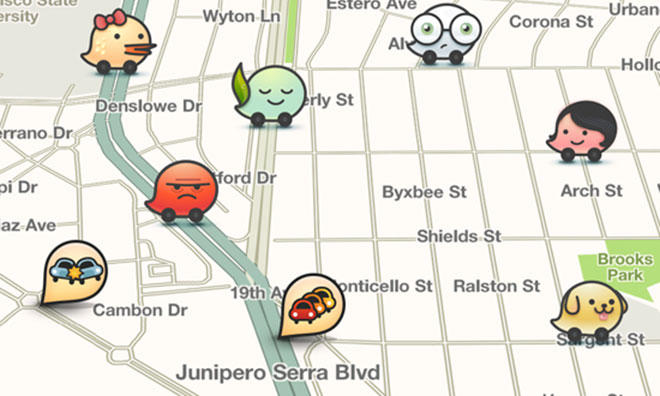
Police, Privacy Groups Spar Over App’s Police-Locator Tool
Waze, the popular traffic and navigation app, has come under fire recently for a feature that lets users share the location of police cruisers. Law enforcement groups believe the app threatens the safety of the public and police, while privacy groups point to the First Amendment.
The National Sheriffs’ Association broadened its campaign against a popular community-based traffic and navigation app last week. Google’s Waze app, which allows drivers to share real-time information about accidents, road hazards, and traffic jams, has one particular feature that the association wants shut off: police location reporting.
In a statement last week, NSA said the app hampers the use of speed traps, radar guns, and other speed enforcement techniques used by police.
The ability for individual or organized crime to track law enforcement puts every community they protect at risk.
“We are … concerned this app will have a negative effect on saving lives and with public safety activities,” NSA Deputy Executive Director John Thompson said in the statement.
Google countered that the police location reporting feature actually encourages safe driving. “Most users tend to drive more carefully when they believe law enforcement is nearby,” Waze spokeswoman Julie Mossler told the Associated Press.
Speed traps aren’t NSA’s only concern. After two New York City police officers were killed while sitting in their cruiser in December, the group suggested that the app could put officers’ lives at risk, enabling people with grievances against police to plan or carry out an attack. It could also let perpetrators avoid police when committing a crime.
“The ability for individual or organized crime to track law enforcement puts every community they protect at risk,” NSA said. “If the bad guy knows where law enforcement is all the time, it makes it much easier for them to carry out their illegal activities.”
NSA’s message has been echoed by the Los Angeles Police Department and various local Fraternal Order of Police lodges, but other national law enforcement groups have remained quiet on the issue.
Meanwhile, several privacy and civil liberties groups said the tool enables person-to-person sharing of information in the public square—a basic right protected under the First Amendment.
“The idea of sharing information about where speed traps are, and police officers are on the road, is ingrained in road culture,” Dave Maass, an investigative researcher with the Electronic Frontier Foundation, said in an interview with NPR. “It’s been going on for decades. Waze is just basically the new [citizens’ band] radio.”
Maass went on to call police objections to the app hypocritical.
“Police for years have been arguing that what you do in the public space isn’t private,” he said. “They’ve said they can have facial recognition, they can have automatic license plate readers, and that people have no expectation of privacy [in public]. But when the tables are turned, then that’s dangerous?”
(Waze press image)






Comments